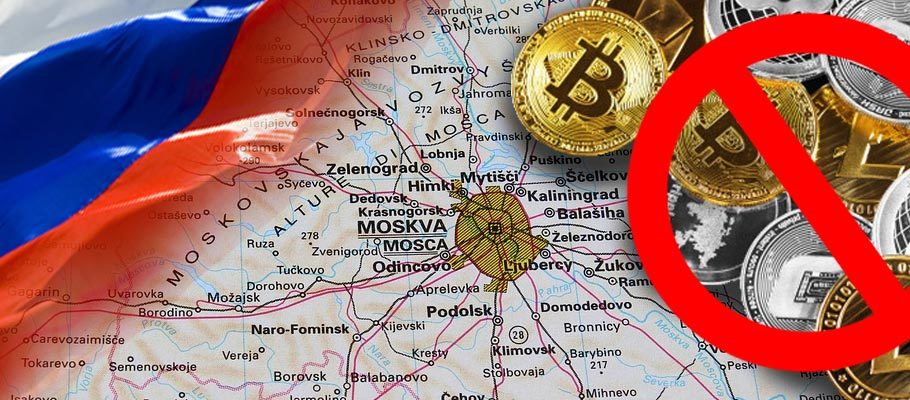
Published: August 14th, 2020
Russia recently enacted cryptocurrency legislation that came about inches of the previous regulation that banned crypto coins entirely. However, the new law allows Russians to trade cryptocurrencies but spells stringent restrictions for their use as money.
Russia will allow cryptocurrencies beginning January 1, 2021. This provision is according to the new law that Russia recently enacted. However, the extent of the new legislation does not allow the coins to be used for buying goods or services within the country.
The new cryptocurrency law is close enough to the previous guideline that banned digital assets entirely. However, while this new enactment does not entirely outlaw cryptocurrencies, it imposes very stringent restrictions on how Russians can use crypto as a form of money.
The earlier regulation had associated almost all activities involving cryptocurrencies with a criminal angle. As such, all crypto-related activities were subject to anti-money laundering regulations. The relevant authorities intimated that more regulations might be added to this law at a later time. However, Russians are allowed to mine, buy, sell, and trade cryptocurrencies on crypto exchanges.
Additionally, they can own wealth in crypto form without any legal obligations. However, this liberty does not allow them to use digital assets to buy services or goods sold within the domestic economy.
With the same stroke of the pen, Russian banks can now open and operate cryptocurrency exchanges, provided they do so under the country’s central bank’s supervision. Entities can also release new digital currencies into the market but under the guidance of the central bank.
This new legislation appears considerably liberal compared to an earlier one that many market operators thought would have amounted to an entire ban of cryptocurrency-related activities in Russia. Market insiders say it is not a panacea but is a starting point to a forward-thinking view of digital assets and their adoption in Russia.
According to Roger Huang, a crypto and blockchain contributor at Forbes, the stories and trends of the Russian government’s attitude to cryptocurrencies vary depending on whom you ask. However, he adds that these conversations follow certain common themes.
For instance, cryptocurrencies are sort of criminal while the blockchain is viewed positively. He adds that the Russian outlook almost mirrors that of China.
Roger said that while everyone treats cryptocurrency and blockchain as two sides of the same coin, China and Russia prefer to isolate their binary nature. He said that everybody’s view is that the blockchain or the distributed ledger, is the anchor that holds cryptocurrencies. It is the centralizing infrastructure that helps governments move closer to benefiting from digitization.
On the other hand, Russia and China view cryptocurrencies as the public’s attempt at eroding both power and currency.
The biggest opponent of digital assets in the transcontinental country is its central bank. A series of acts by the bank supports this premise. For instance, in 2017, the Bank of Russia drafted a letter warning the public of unsubstantiated criminal acts using cryptocurrencies.
Earlier in 2014, the bank had cautioned that cryptocurrencies could launder money and support terrorist activities. And, even before that, the state institution had pointed out that digital assets are more like gambling and should not be considered as investment tools.
Recently, it warned the government from encouraging Russians to use cryptocurrencies. The director of legal affairs at the bank, Alexey Guznov, said that big risks abound when cryptocurrency operations are legalized. He added that the country could ensure financial stability, consumer protection, and money-laundering prevention by putting a lid on cryptocurrency use.
All these cautions come on the backdrop of the country’s strict new internet laws, the Sovereign Internet Bill of Russia. By putting a blanket cover over all of Russia’s internet traffic, the government is simply positioning itself for total surveillance over its digital activity.
The new cryptocurrency regulations want to make the most of the central bank’s approach; that is, a strong, centralized government agency that monitors all financial transactions. The tact, coupled with the regretful acceptance of the matter-of-factly reality that many Russians have adopted and are using cryptocurrencies, is all too unsettling, Huang said.
The fact that the dramatic rise of ICOs hosted in Russia and VK, a social media network ever considered launching its cryptocurrency, cannot deter the government’s unorthodox approach is chilling, the Bitcoin enthusiast added.
The cryptocurrency regulation trends in Russia almost mirror the struggles of the giant messaging application, Telegram, had and how it overcame censorship. The social media network clawed its way to relevance amid gigantic odds by providing unique services.
Similarly, cryptocurrency insiders will most likely build circumventions that counter these recent regulations. Huang said that since blockchain protocols are built to be resilient and with incentives to adapt to local contexts, he is confident that the Russian government’s attempts may not amount to much.
Huang added that if anything, popular adoption alone is enough to convince any sensible person to appreciate an application’s importance. He foresees a situation where even government officials will seek to use blockchain ideas to improve digitization processes and scale up control.
The Bitcoin enthusiast said that the government’s apparent backtracking might indicate that Russia is bowing to the forces of cryptocurrencies as they continue to proliferate in the country.
He concluded that the Russian case would be countered by technology’s bottoms up trait of advocating for democratic principles and choices. Such a situation will force the government to bend to top-down approaches.
Russia, which only recently attempted a blanket ban on cryptocurrencies, seems to be backtracking. Though the new law allows Russians to buy, sell, trade, and even hold cryptocurrency wealth, the population cannot use the same to buy goods and services available in the domestic market. However, experts think that the nature of the technology that supports cryptocurrencies will make it easy to provide tools that circumvent the government’s overbearing hand.